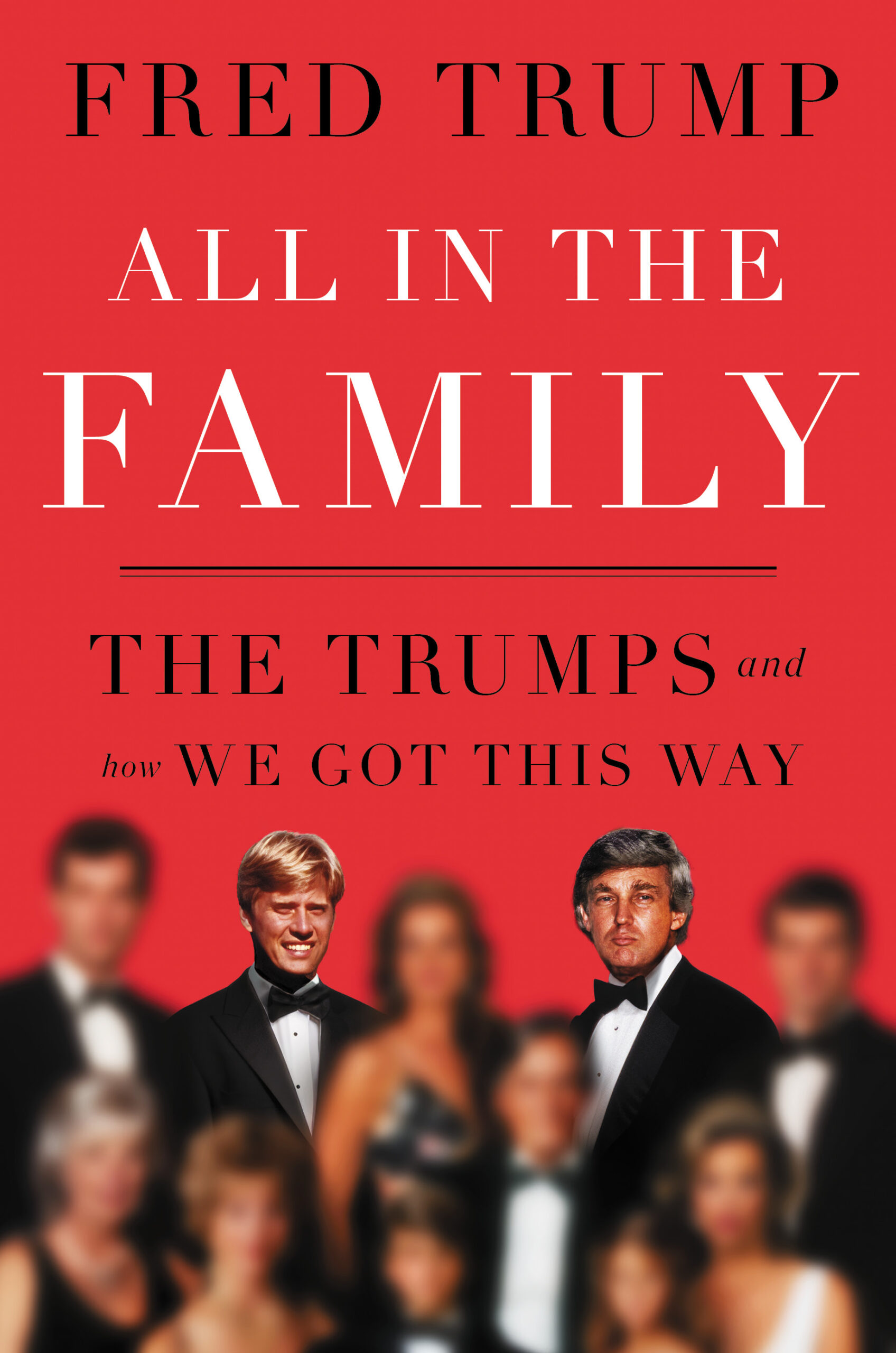When one delves into the intricacies of familial bonds, particularly within the nebulous realms of power and influence, “All in the Family” by Fred C. Trump III emerges as a fascinating exploration of legacy and identity. The book not only chronicles the life of a prominent family but also serves as a compelling lens through which readers can examine societal dynamics, ambition, and the often tumultuous intersections of personal and public life.
This profound narrative does not merely recount the Trump lineage; it raises penetrating questions about what it means to belong to a dynasty that has irrevocably shaped the socio-political landscape of America. The title itself, “All in the Family,” encapsulates both the warmth of kinship and the weighty expectations that accompany it. With enthusiasm, readers are drawn into a world where familial loyalty collides with the relentless pursuit of success.
At the heart of the book lies Fred C. Trump III’s introspective analysis of his lineage, marked by the towering figure of his grandfather, Fred Trump Sr. The author deftly navigates through the apparent glamour of wealth and influence, unearthing the underlying complexities that often remain concealed. This juxtaposition of the gleaming facade against the raw, unvarnished truth creates a rich tapestry, inviting readers to ponder the cost of achievement within a family so firmly entrenched in American culture.
One noteworthy theme throughout “All in the Family” is the duality of perception versus reality. Observers from the outside may be entranced by the allure of affluence and power, yet the narrative invites them to scrutinize the sacrifices and moral dilemmas that accompany such a status. The author articulates a pervasive phenomenon: the juxtaposition of public admiration against intimate vulnerability. Readers may find themselves reflecting not only on the Trump family’s challenges but on their own familial experiences and the inherent struggles faced therein.
Moreover, the depiction of familial loyalty creates a poignant backdrop for the narrative. Fred C. Trump III examines how devotion to family can simultaneously be a source of profound strength and an unbearable burden. The author elucidates how the pressures inherent in such loyalty can lead to conflicts, emotional estrangement, and a continuous quest for individual identity amid overwhelming expectations. This dynamic perhaps resonates universally, prompting anyone with familial obligations to consider the delicate balance between support and autonomy.
As the narrative unfolds, the author intersperses anecdotes that reveal the human side of his family, providing an authentic glimpse into their everyday lives. These stories, rich in detail, evoke a spectrum of emotions. Whether it is a moment of triumph or hardship, the raw honesty within the narrative is palpable. This intermingling of personal history with broader social implications enhances the feeling of connection between the reader and the intricacies of Trump’s family saga.
Alongside personal anecdotes, the book delves into the socio-political implications of the family’s prominence. The Trumps are not merely a family; they are a phenomenon that reflects a larger societal narrative. Fred C. Trump III’s observations on how the family’s rise correlates with the shifting tides of American politics are particularly astute. He outlines how cultural shifts have influenced their public image and, by extension, the underlying relational dynamics within the family. This intertwining of personal and political history enriches the reading experience, metamorphosing it into an exploration of national identity as well.
Additionally, themes of ambition and the relentless pursuit of self-identification permeate “All in the Family.” Ambition, in its essence, impels individuals towards greatness but can also lead to profound dissonance. The author depicts his journey seeking recognition and carving out an identity distinct from the towering legacy of his forebears. This innate desire to be seen as an individual while navigating the constraints of one’s lineage is a recurring motif, encouraging readers to consider their own paths and the interplay of their histories with aspirations.
Moreover, Fred C. Trump III does not shy away from addressing the pitfalls of public life. He unveils the inherent vulnerabilities that accompany visibility, laying bare the scrutiny faced not just by the prominent figures of his family but also by their descendants. The exploration of these themes resonates deeply with contemporary societal concerns regarding privacy and the impact of fame on personal relationships. For readers, this candid examination serves as a poignant reminder of the human toll that can accompany public scrutiny.
The conclusion of “All in the Family” resonates with a sense of reflective introspection. The author imparts valuable lessons gleaned from years of navigating the complexities of wealth, loyalty, and identity. He poses questions that prompt readers to consider their familial relationships, their ambitions, and the definitions of success within the context of both personal and broader societal frameworks.
In a world where the dynamics of family and power continue to fascinate and often incite debate, “All in the Family” stands as a testament to the complexities of human relationships. Fred C. Trump III’s eloquent prose and insightful observations encourage readers to engage in a thoughtful examination of their own familial narratives and the wider world. The blend of personal and political, local ties and national significance, renders this book a significant contribution to the discourse surrounding legacy, ambition, and the family unit. It illuminates the pathway from desire to reality, inspiring both introspection and broader societal contemplation.
